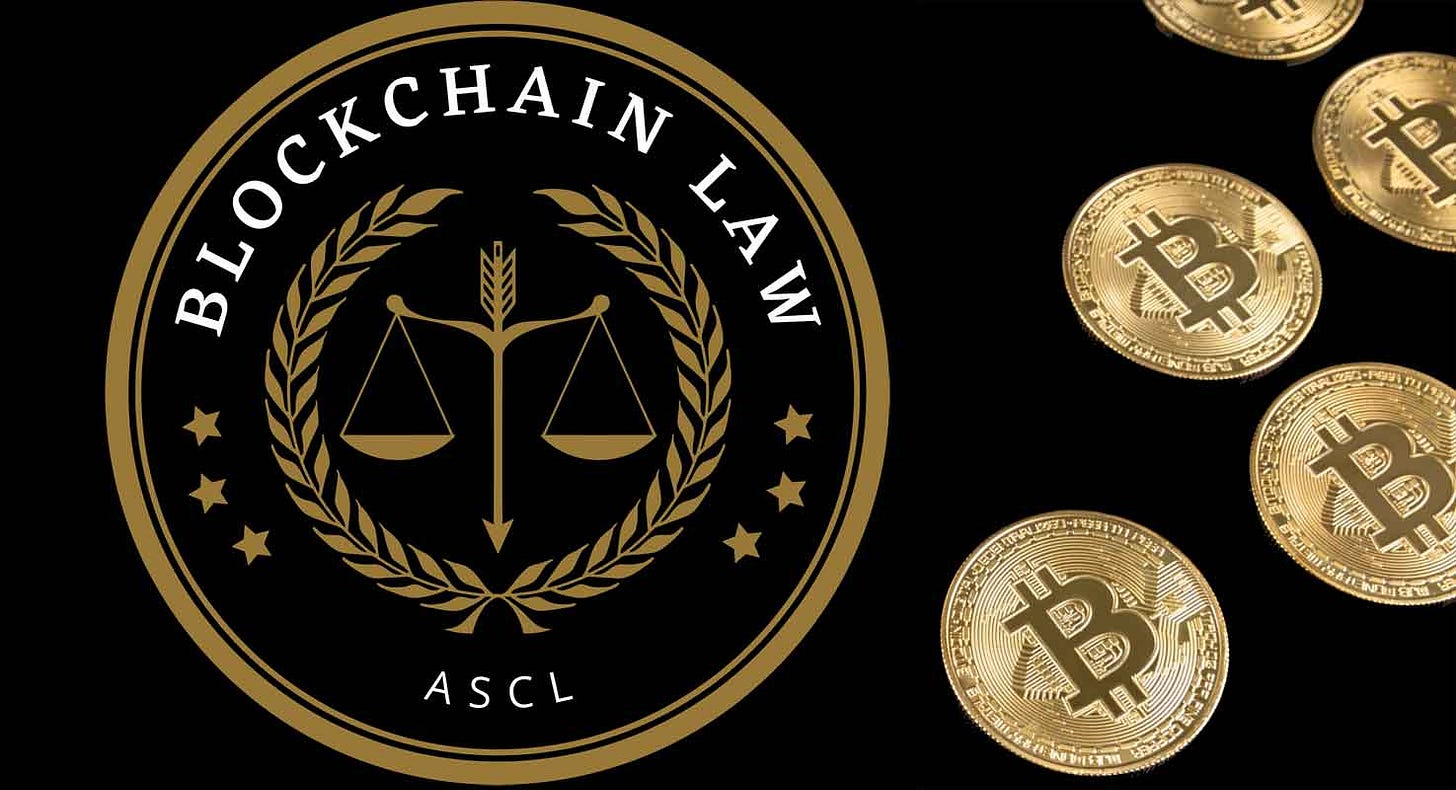What is Blockchain Law?
Blockchain Law covers Crypto Assets, Decentralized Autonomous Organizations (DAO), Decentralized Finance (DeFi), Metaverse, Tokenization & Web3.
Did you know that the academic documents of 10th & 12th standard CBSE students in India is being stored on a Blockchain?
Blockchain adoption is growing massively in India. Active use-cases include land registration, blood banks, Public Distribution System(PDS), remote voting, GST records, and academic certificates.
For details see blockchain.gov.in and India's National Strategy on Blockchain.
Blockchain Technology started with 1 use case - the Bitcoin crypto currency.
Today, Blockchain Technology powers a multi-trillion dollar economy including:
Crypto Assets,
DAOs (Decentralized Autonomous Organizations),
DeFi (Decentralized Finance),
Metaverse,
Tokenization,
Web3.
1. What do Blockchain Laws cover?
Crypto Assets - Cryptocurrencies, Governance tokens, Non-fungible Tokens (NFT), Privacy coins, Security tokens, Utility tokens, Wrapped Assets & Stablecoins
Decentralized Autonomous Organizations (DAO)
Fundraising mechanisms - ICO, Reverse ICO, IDO, DAICO, IEO, ETO & STOs, SAFT
Decentralized Finance (DeFi) protocols - Bridges Bridges, Collateralized Debt Position protocols, Crypto Derivative Projects, Decentralized Exchanges, Farms, Indexes, Lending, Liquid Staking, Options, Oracles, Payments, Prediction Markets, Staking, Synthetics, Yield & Yield Aggregators.
DeFi Ecosystem - Liquidity Providers, Miners & Mining pools, Mixers, Oracles
Crypto & DeFi crimes - Access Control Hacks, Bank Runs, Exit Scams, Exploits, Flash Loan Attacks, Honeypots, Metaverse crimes, Phishing, Rugpulls, Scams
Crypto enabled crimes - Darknet Markets, Ransomware, Money Laundering, Terrorist Financing
2. What does a Blockchain Lawyer do?
1. Advises on legal compliance.
Major jurisdictions for Blockchain startups are India, the US, Japan, the EU, Malta & Singapore.
2. Advises on DeFi-based fundraising.
Examples: ICO, Reverse ICO, IDO, DAICO, IEO, ETO & STOs, SAFT.
3. Advises on establishing and managing Decentralized Autonomous Organizations (DAOs).
4. Handles compliance for crypto exchanges.
5. Advises on crypto taxation.
6. Prosecutes & defends Crypto Crimes.
Examples of Crypto enabled crimes: Darknet Markets, Ransomware, Money Laundering, Terrorist Financing
Examples of Crypto & DeFi crimes: Access Control Hacks, Bank Runs, Exit Scams, Exploits, Flash Loan Attacks, Honeypots, Metaverse crimes, Phishing, Rugpulls, and Scams.
3. Where to study Blockchain Laws
Executive Program in Blockchain Law is a 2-month online course conducted by Asian School of Cyber Laws.
It covers the legal framework around the Blockchain ecosystem - Crypto Assets, DAOs, DeFi, Metaverse, Tokenization & Web3.
For details, see: https://www.asianlaws.org/blockchain-law.php
4. Blockchain-related laws in India
Income-tax Act - This Act defines virtual digital assets (which covers all cryptos & most NFTs). It also provides for 30% tax as well as 1% TDS for most crypto & DeFi transactions.
Prevention of Money Laundering Act - Using crypto & DeFi to convert black money into white money is punishable with jail of up to 7 years & fine under this Act.
Black Money and Imposition of Tax Act - Using black money to trade cryptos on foreign crypto exchanges could land you in serious trouble under this Act.
This Act provides for rigorous imprisonment of up to 10 years and fines.
Indian Penal Code - Various crypto-related crimes such as theft, extortion, cheating & fraud are punishable by imprisonment & fines under the Indian Penal Code.
Information Technology Act - Various crypto-related crimes such as hacking, cheating & fraud are punishable with imprisonment & fines under the Information Technology Act.
Prohibition of Benami Property Transactions Act - Trading in crypto under a fake name is punishable with imprisonment of up to 7 years & fines under this Act.
Supreme Court of India judgment in Internet and Mobile Association of India versus Reserve Bank of India
For details, see: Indian Laws on Crypto Assets
5. International Blockchain Laws
This section introduces some of the international Blockchain laws.
1. Dubai
The primary framework comprises Dubai's Law No. 4 of 2022 on the Regulation of Virtual Assets (VAL) and the Dubai Virtual Assets Regulatory Authority (VARA).
VAL excludes activities in the Dubai International Finance Centre (DIFC) - a purpose-built financial free-zone. Dubai Financial Services Authority (DFSA) is the independent regulator of financial services conducted in or from the DIFC.
2. Japan
The primary law is the Payment Services Act.
3. Malta
The primary law is the Virtual Financial Assets Act.
4. Singapore
In Singapore, cryptos are defined as “digital payment tokens” under the Payment Services Act, 2019.
Section 2 defines a “digital payment token” as a digital representation of value (other than an excluded digital representation of value) that:
is expressed as a unit
is not denominated in any currency, and is not pegged by its issuer to any currency;
is, or is intended to be, a medium of exchange
can be transferred, stored, or traded electronically
Fintech startups will need to obtain special licenses if they are going to offer one of these 7 payment services:
account issuance service
domestic money transfer service
cross‑border money transfer service
merchant acquisition service
e-money issuance service
digital payment token service e.g. cryptocurrency exchange
money‑changing service.
5. United States
Regulations by the:
US Securities and Exchange Commission (SEC),
Financial Crimes Enforcement Network (FinCEN),
Commodities Futures Trading Commission (CFTC),
Internal Revenue Service (IRS).


